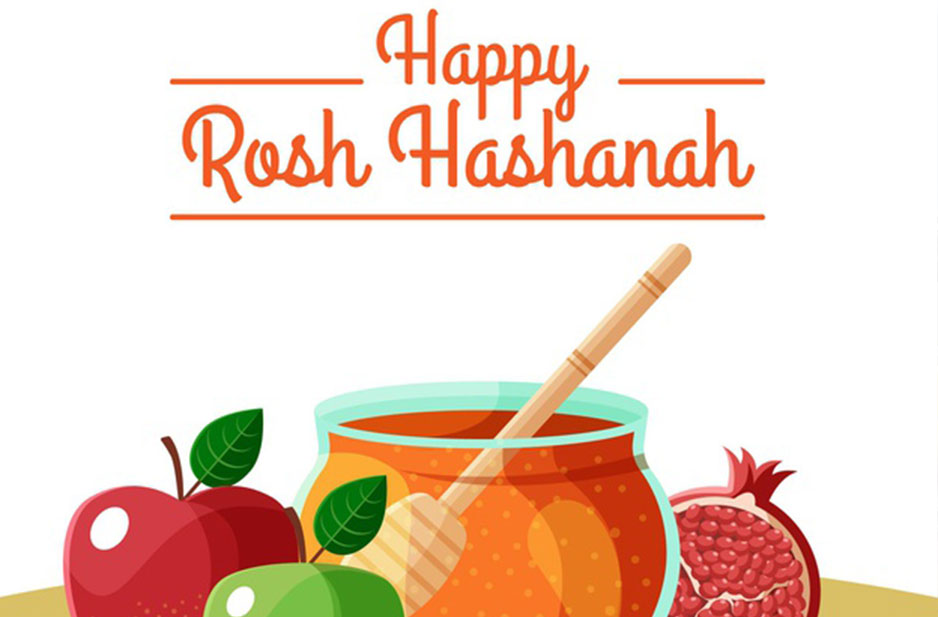From Israel to Ethiopian, the US to Germany, South Africa, Ghana, the UK, Ukraine, Bahamas, Brazil, Bosnia, China and countries the length and breadth of today’s world millionsthe world's Jewish population will gather to mark the Jewish New Year.
And with those identifying as Jews above all else, the "connected" Jewish population, including those who say they are partly Jewish or that have Jewish background from at least a single Jewish parent, mark Rosh Hashanah, which is traditionally the time for big, family get-togethers.
Representing a time of asking for forgiveness of sins, many Jews believe that God keeps a Book of Life with the names of everyone who is sorry for what they have done wrong. At Rosh Hashanah, Jews hope that they and their loved ones will be written in the Book of Life.
Judaism teaches that God decides on the first day of the year who will be forgiven, so they will ensure they apologise to everybody they have been unkind to during the past year. God makes his final judgement on Yom Kippur which means Day of Atonement.
Yom Kippur is marked by Jewish people in a number of ways:
- some wear white as a symbol of purity
- no food or drink is consumed for 25 hours
- no make-up or perfume is worn
- no sexual intercourse
- no bathing
- no leather shoes are worn
The most important part of Yom Kippur is the time spent in the synagogue. Many Jews who are not particularly religious will nevertheless want to attend synagogue on Yom Kippur, the only day of the year with five services.
The day is spent in continuous prayer for forgiveness. This festival is a time of reflection for Jews. The services end with a long blast on the shofar.
But, of course, this year, through the worldwide coronavirus pandemic and country’s cities under lockdown, pilgrimages to synagogues, and the like, has made the annual two-day celebration which usually takes place in September or October that marks the Jewish new year.
The event, which usually begins at sundown, customarily with the blowing of the shofar, the ram’s horn, which is meant to wake up people from their slumber, is the anniversary of when God created Adam and Eve. Usually, a prayer service is held in a synagogue where an instrument made from the horn of a kosher animal (known as a shofar) is blown.
Marking the occasion, as many look to Israel as the centre of celebrations, equally so those will be going through their own Rosh Hashanah in the most ancient of Ethiopian, Sephardi, and Mizrahi Jews of North Africa Jewish communities in the afore mentioned continent.
But, however, the restrictions around religious ceremonies and access to places of worship, though varying from country to country, and region to region due to the Covid-19 outbreak, could never prevent tzedakah, or giving back to those in need.
Rosh Hashanah (the head of the year in Hebrew) will forever see people carrying out good deeds in the hope that God will mark their names in the Book of Life, which will give them a happy and fruitful year ahead.
With Israel, who, just like too many other countries, currently has one of the highest Covid-19 infection rates in the world - entering its second nationwide lockdown to curb surging coronavirus cases, the new national lockdown is making the powers-that-be widely unpopular, with protests taking place before it came into force.
The nation’s Prime Minister, Benjamin Netanyahu, warning that, if necessary, he will not hesitate to impose harsher restrictions.
The restrictions are the most extensive imposed there since the first lockdown, which ran from late March until early May.
Rosh Hashanah and Yom Kippur marks the opportunity for Jews to ask questions about their actions and life throughout the year.
And for that, the most common greeting to hear during this occasion is L’shanah tovah, which means ‘for a good year.’ You can also say ‘Shanah Tovah um’tukah’, which means ‘may you have a good and sweet new year.’
But for that, as everywhere else, it will not stop Shana Tova, which is the shortened greeting for Rosh Hashanah, which cuts down from the traditional greeting of ‘L’shanah tovah tikatev v’taihatem’, which in turn means ‘may you be inscribed and sealed for a good year.’
Shanah Tovah!
